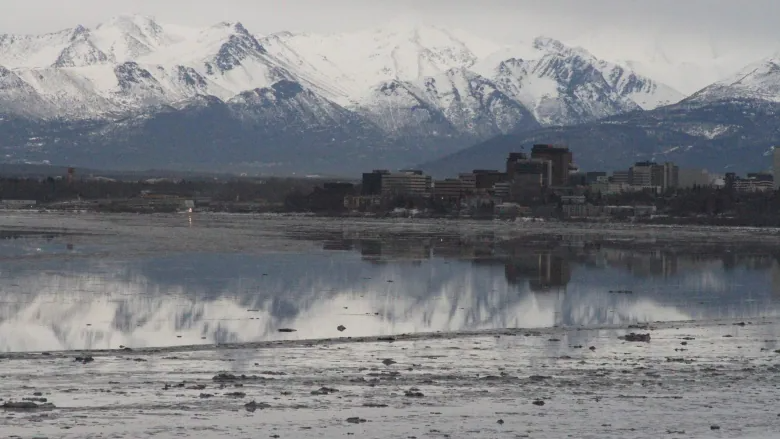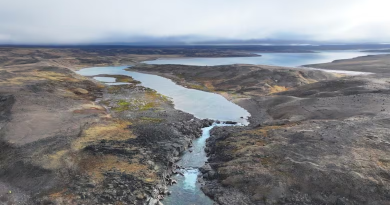Arctic Security: University of Alaska Anchorage to lead center of excellence

As the Arctic grapples with growing challenges, the U.S. Department of Homeland Security has chosen the University of Alaska Anchorage to lead a research consortium that will address pressing issues ranging from cyber threats to environmental issues, and security concerns.
This initiative, known as the ADAC-ARCTIC Center of Excellence (COE) for Homeland Security in the Arctic, will unite diverse U.S. academic institutions and partners to address a spectrum of regional matters.
“We put together a great team that brings together experts across the United States and collaborations across the Polar North,as well as integration with our federal partners like National Labs and others,” Aaron Dotson, vice chancellor for research at the University of Alaska Anchorage, told Eye on the Arctic.
“We believe this will bring the center of excellence to a positive start, and life, during its 10 years of operation.”
“Creating the next homeland security workforce”
The award comes with $46-million US in funding over a 10 year period.

“The ADAC-ARCTIC COE will affect major DHS mission priorities by focusing on critical research needed to prepare for and implement effective responses to challenges facing the Arctic domain,” Dimitri Kusnezov, DHS Under Secretary for Science and Technology, said in a statement earlier this month.
“The Arctic’s dynamic ecosystem has proven to be an extraordinary challenge, and DHS is fortunate to leverage the expertise of academia to meet operational requirements.”
Dotson says the award is an exciting opportunity to help train the next generation of Arctic experts, with the majority of the funding is allocated towards educational workforce initiatives and, predominantly, research projects.
“We’ll be creating the next homeland security workforce and creating new tools that will be used in the Arctic and beyond,” he said.
“A specific aspect that we’re continuing from our prior center is the Arctic Summer internship program where we bring in students from across the US, across discipline areas, and give them that Arctic experience. Many of our Homeland Security workforce, while they serve in that domain, they have little experience in the Arctic, so we provide that experience for them in this setting as well as many other opportunities.”
State hub
Dotson said Anchorage’s proximity to the Coast Guard, Fort Richardson Army Base and Elmendorf Air Force Base, as well as it’s position as a state hub home to the offices of tribal leaders and various government agencies in the state, in addition to the Ted Stevens Arctic Security Studies Center, makes the institution well positioned for coordinating the kind of Arctic research that’s become increasingly necessary.
“We’re very proud to host this in Anchorage, as the population centre of the state as well as the location of many of our partners,” he said. “And while the work will be performed many places outside of Anchorage, Anchorage creates that home.”
Related stores from around the North:
Canada: Yukon’s new Arctic security council to help prepare territory for a changing world, CBC News
Finland: Finland invites American troops to bases in Lapland, The Independent Barents Observer
Norway: British & Norwegian F-35s scrambled in North to intercept Russian military plane, The Independent Barents Observer
Denmark: Denmark promises increased focus on Arctic as it takes over NORDEFCO chair, Eye on the Arctic
United Kingdom: UK urged to bolster Arctic defense as grey-zone threats rise: report, Eye on the Arctic
United States: First U.S. deep water port for the Arctic to host cruise ships, military, The Associated Press



